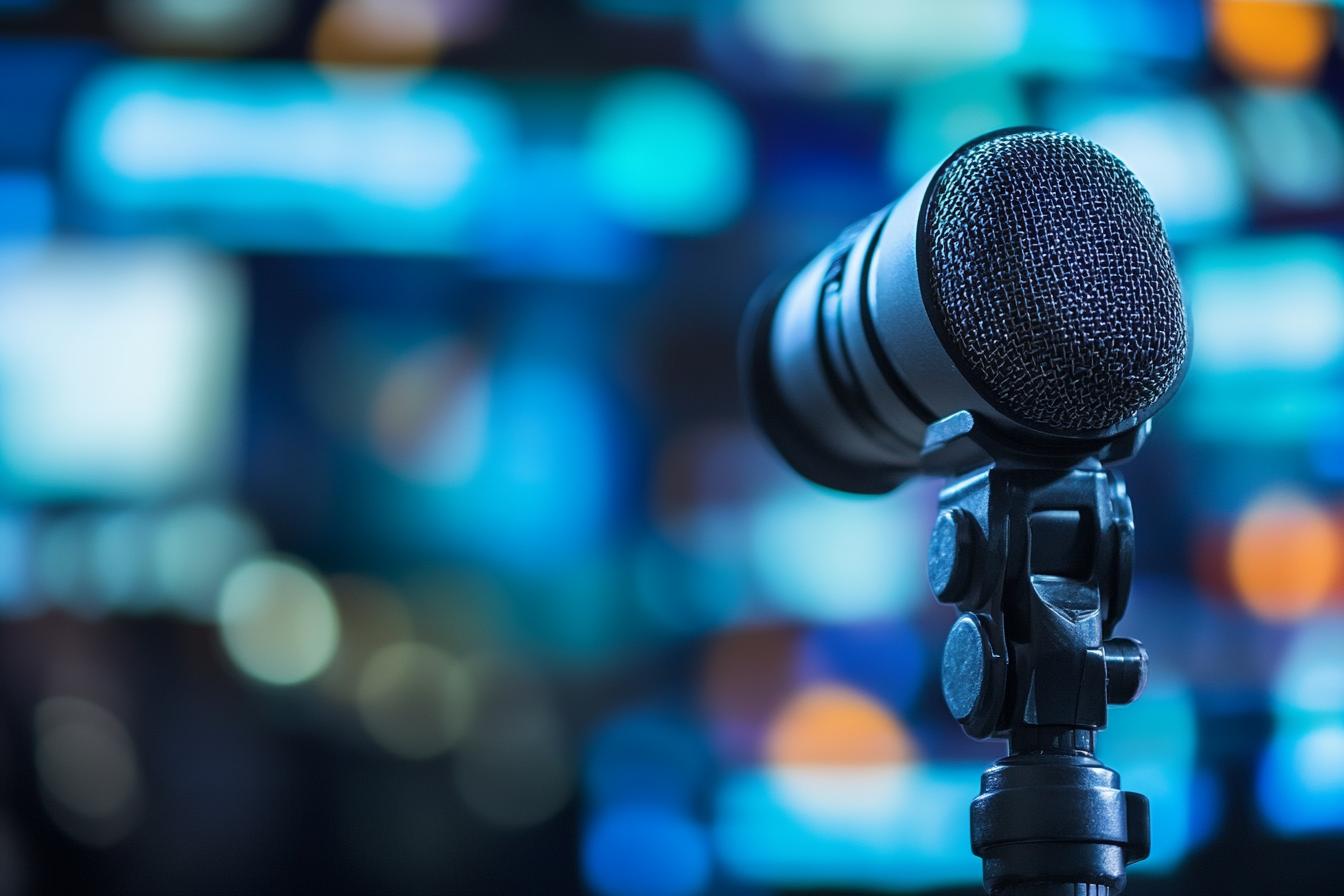Welcome back to “The Radio Wave,” where we explore the fascinating world of radio and its impact on our lives. Today, we’re diving into the realm of podcasting, a medium that’s revolutionized the way we consume information and entertainment. Our guest is [Guest Name], a seasoned podcaster with a knack for captivating audiences. [Guest Name], you’ve built a successful podcast with a loyal following. What sparked your interest in podcasting and what’s the driving force behind your creative process?
It’s remarkable how podcasting has evolved from a niche hobby to a mainstream platform. [Guest Name], you’ve witnessed this transformation firsthand. What are some of the key changes you’ve observed in the podcasting landscape over the years? Also, what advice would you give to aspiring podcasters looking to make their mark in this dynamic and competitive field?

Radio News Interview
1. Radio News Interview
A radio news interview is a powerful tool that allows journalists to delve deeper into current events and provide listeners with insightful information. It is a conversation between a reporter and a guest expert, where the reporter asks questions to gather information and the guest provides their perspective on the topic. During an interview, the reporter actively listens and probes for details, while the guest shares their knowledge and experiences. This dynamic exchange helps the audience understand the complexities of the issue at hand and provides a richer understanding of the news.
To ensure a successful interview, thorough preparation is key. The reporter researches the topic thoroughly and crafts thoughtful questions that elicit insightful answers. The guest, in turn, prepares by gathering relevant information and considering potential questions they may be asked. By working together, the reporter and guest create a compelling narrative that informs and engages the listening audience. Radio news interviews provide a platform for diverse voices to be heard and contribute to the public discourse on important issues.
2. Host questions expert
A radio news interview thrives on engaging questions that both inform and captivate the audience. The host’s role is to guide the conversation, delving into the expert’s knowledge and expertise while keeping the listener’s interest piqued. This involves asking clear, concise questions that are relevant to the topic at hand, and also tailored to the specific audience. For example, if the interview focuses on a scientific breakthrough, the host might ask the expert to explain the discovery in simple terms, highlighting its potential impact on everyday life.
Beyond seeking factual information, the host should also encourage the expert to share personal insights and anecdotes. This humanizes the expert and makes the topic more relatable to listeners. The host can accomplish this by asking questions that explore the expert’s motivations, challenges, and hopes for the future. For instance, the host could ask the expert about their initial interest in the field, or how their research has changed their perspective on the world. By fostering a dialogue that is both informative and engaging, the host can make the interview a memorable and enriching experience for the audience.
3. Inform listeners on current events
Keeping our listeners informed about current events is a cornerstone of our radio news programming. We strive to provide clear, concise, and accurate reporting on the most important stories happening locally, nationally, and internationally. Our team of experienced journalists diligently gathers information from a variety of sources, including press releases, official statements, and interviews with experts, to deliver a well-rounded perspective on the news.
Furthermore, we aim to make complex issues accessible to our diverse audience. We present the news in an engaging and informative manner, using language that is easy to understand. We also provide context and analysis, helping our listeners make sense of the world around them. By offering a platform for different viewpoints and fostering critical thinking, we empower our listeners to stay informed and engaged in the world around them.
4. Live or prerecorded format
When planning a radio news interview, you have the option of conducting it live or prerecording it. A live interview brings immediacy and allows for spontaneous reactions and follow-up questions. This format can be exciting for listeners, especially when covering breaking news or hot topics. However, live interviews require careful preparation and a skilled interviewer to maintain control and ensure a smooth flow.
On the other hand, a prerecorded interview offers more flexibility and control. You can edit out any mistakes or awkward pauses, ensuring a polished final product. Prerecording also allows you to schedule interviews at a time convenient for both parties, regardless of location. This format is especially helpful for interviews with busy individuals or when you want to create a more thoughtful and deliberate piece.
5. Focus on clarity and conciseness
Imagine you’re listening to the radio while driving. You want to get the news quickly and easily. That’s why clear and concise communication is crucial in radio news interviews. Avoid using complex jargon or long, rambling sentences. Instead, use simple language and short, impactful phrases. This allows listeners to grasp the information quickly and remember it. Remember, the goal is to inform, not to impress.
Think of each sentence as a building block. Each sentence should contribute to the overall understanding of the topic. Avoid unnecessary details or repetition. Focus on delivering the key points in a straightforward manner. This will make your interview more engaging and memorable for the listeners. By focusing on clarity and conciseness, you ensure that your message resonates with your audience.
6. Engaging interview style
A captivating radio news interview hinges on an engaging interview style. The interviewer should actively guide the conversation, asking open-ended questions that encourage the guest to elaborate and share personal anecdotes. The interviewer’s tone should be both professional and friendly, creating a comfortable atmosphere for the guest to share their insights. Instead of simply asking “yes or no” questions, the interviewer should delve deeper, prompting the guest to provide context and expand on their thoughts. This fosters a dynamic exchange that keeps listeners engaged.
Furthermore, a skilled interviewer will listen intently, building upon the guest’s responses to ask follow-up questions and explore new angles. The interview should flow naturally, with the interviewer seamlessly weaving together different topics and ensuring the conversation remains relevant to the audience. By actively engaging with the guest and showcasing genuine interest in their perspective, the interviewer can create a compelling and informative radio news segment that resonates with listeners.
Conclusions
So, there you have it! Radio news interviews are a powerful tool for keeping listeners informed about current events. Whether live or prerecorded, these interviews bring experts to the forefront, providing valuable insights and perspectives. The key is to keep things clear and concise, making information easy to understand. And let’s not forget about the engaging interview style! A good interviewer knows how to ask the right questions, keeping listeners hooked and wanting more.
Whether you’re a news junkie or just looking for a quick update, radio news interviews offer a compelling way to stay informed. So next time you hear that familiar voice on the radio, tune in and let the experts guide you through the latest happenings!
